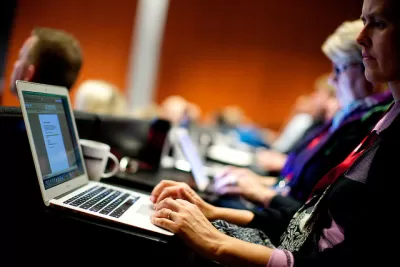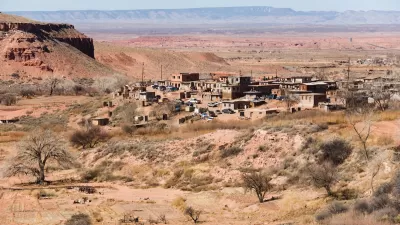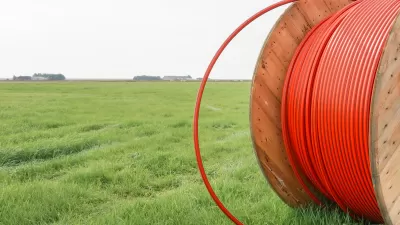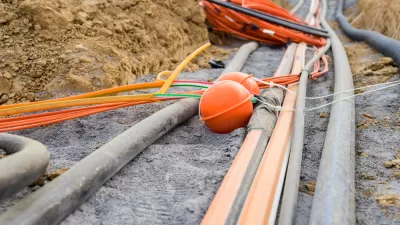Rural Alaska has some of the least reliable and slowest internet connections in the country, but new cable infrastructure in the Arctic Sea is changing that.

Nome, Alaska’s schools classes are getting new video-taught classes, something that would have been borderline impossible a year ago. Isolated Alaskan schools lack the staffing and resources to provide some of the lessons students could get in other parts of the country, in part because they can have slow, unreliable internet.
"Nome and two other school districts in northwestern Alaska are pioneering a high-speed fiber-optic cable connection that has the potential to transform how education is delivered in the state—and shrink a connectivity gap between rural Alaska and the majority of American schools," Mareesa Nicosia writes for the Hechinger Report. Nome is not the only Alaskan town with slow internet connections. "Alaska ranks last in the nation in the percent of its school districts meeting the minimum internet-speed targets set by the Federal Communications Commission, according to the nonprofit EducationSuperHighway," Nicosia reports.
This new infrastructure is being made possible in part because of global warming. As Arctic sea ice melts, it’s become possible to install fiberoptic cable connections. "In March, Nome Public Schools became the first school district to connect to the cable, officials said; over the summer, the neighboring North Slope Borough and Northwest Arctic Borough school districts joined as well," Nicosia writes. Private equity is building this infrastructure with the hopes of eventually connecting Alaska to Asia, but in the meantime rural Alaskan schools are benefitting from the new infrastructure.
FULL STORY: Alaska schools pay a price for the nation’s slowest internet, but change is coming

Maui's Vacation Rental Debate Turns Ugly
Verbal attacks, misinformation campaigns and fistfights plague a high-stakes debate to convert thousands of vacation rentals into long-term housing.

Planetizen Federal Action Tracker
A weekly monitor of how Trump’s orders and actions are impacting planners and planning in America.

Chicago’s Ghost Rails
Just beneath the surface of the modern city lie the remnants of its expansive early 20th-century streetcar system.

Bend, Oregon Zoning Reforms Prioritize Small-Scale Housing
The city altered its zoning code to allow multi-family housing and eliminated parking mandates citywide.

Amtrak Cutting Jobs, Funding to High-Speed Rail
The agency plans to cut 10 percent of its workforce and has confirmed it will not fund new high-speed rail projects.

LA Denies Basic Services to Unhoused Residents
The city has repeatedly failed to respond to requests for trash pickup at encampment sites, and eliminated a program that provided mobile showers and toilets.
Urban Design for Planners 1: Software Tools
This six-course series explores essential urban design concepts using open source software and equips planners with the tools they need to participate fully in the urban design process.
Planning for Universal Design
Learn the tools for implementing Universal Design in planning regulations.
planning NEXT
Appalachian Highlands Housing Partners
Mpact (founded as Rail~Volution)
City of Camden Redevelopment Agency
City of Astoria
City of Portland
City of Laramie





























